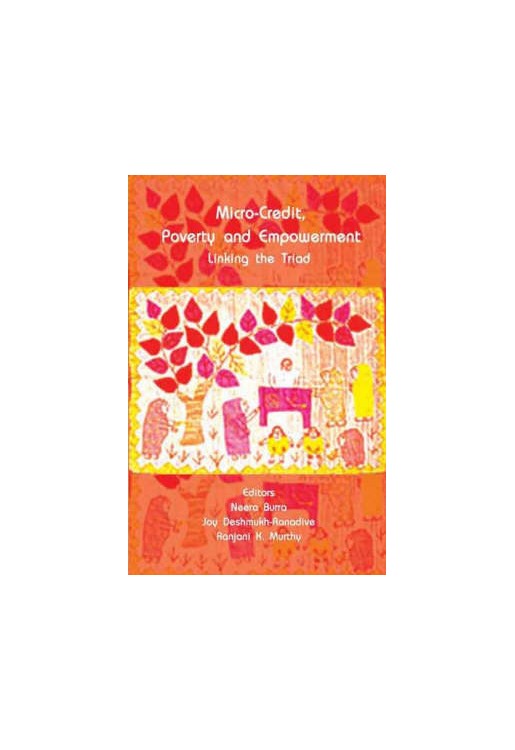Two persistent problems that affect a significant portion of Indian women are poverty and violation of their human rights. In recent years, micro-credit has come to be viewed as a vital tool to ameliorate both conditions. However, there are few studies in the Indian context which test the validity of the assumption that there is a linear link between micro-credit, poverty reduction and women`s empowerment. This important and thought provoking volume brings together revealing case studies of micro-credit interventions made by six non-governmental and quasi-governmental bodies in five states of peninsular India, several of which have been supported by the United Nations Development Programme (UNDP).
The six case studies are diverse in terms of their socio-economic and geo-political contexts: the nature and ideological orientation of the intermediary organizations; the groups targeted by the projects (exclusively women or men and women); and the life-spans of the projects. Despite their differences, all the studies offer useful lessons on the institutional structures and processes that do or do not facilitate women`s empowerment and poverty reduction, while exploring the potential and limitations of micro-credit to achieve these twin goals. This is a very useful book for understanding the various pulls and pressures under which micro-credit operates in this country.... The book is very well written and engaging and opens up several issues for debate. In a sector where most of the work that happens remains in spiral bound reports, it is important that more and more books come out and open up larger debates not only on the nature of the micro-credit programmes, but also on the methodological issues and overall impacts. This book is indeed a very useful and welcome addition as it helps to extend the debate to a higher intellectual plane. It is also an important book for the practitioners since it will help them understand the burden of expectations laid out on them by the world at large. -- Vikalpa The book has been authored by eminent socialists, experienced bankers with valuable grass root experience of working on the pertinent poverty and gender issues and women welfare. -- Indian Journal of Agricultural Economics
Foreword - Maxine Olson
Foreword - ICICI Bank
Preface
Introduction: Linking the Triad - Joy Deshmukh-Ranadive and Ranjani K Murthy
Towards Women's Empowerment and Poverty Reduction: Lessons from the Andhra Pradesh South Asia Poverty Alleviation Programme - Ranjani K Murthy, K Raju and Amitha Kamath with Research Team
Micro-Credit and Women's Empowerment: A Case Study of SHARE Micro-Finance Limited - Anuradha Rajivan
Social Mobilization and Micro-Credit for Women's Empowerment: A Study of the DHAN Foundation - Veena Padia
Awareness, Access, Agency: Experiences of Swayam Shikshan Prayog in Micro-Finance and Women`s Empowerment - Soma Kishore Parthasarathy
Micro-Credit and Women`s Empowerment: The Lokadrusti Case - Shashi Rajagopalan
Social Mobilization and Micro-Finance for Women's Empowerment-Lessons from the ASA Trust - Kalpana Sankar
Conclusion: Analysing the Link - Ranjani K Murthy and Joy Deshmukh-Ranadive
Index


